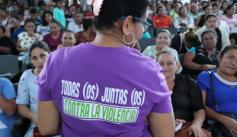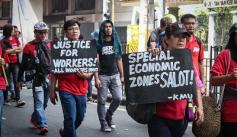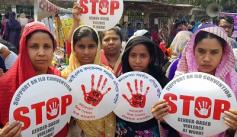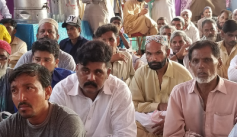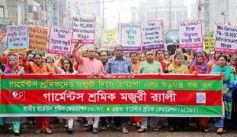Blog: Apparel
August 5, 2024
Five Years of ILO Convention 190: Addressing Violence and Harassment in the Word of Work
June 28, 2024
Oversight Committee Statement on the Progress During the First Year After the Signing of The Dindigul Agreement
September 25, 2023
When ‘business as usual’ costs lives: workers in Pakistan call for a binding safety agreement
November 11, 2019
Our Own Best Defense: How Unions Can Stop GBV at Work
June 14, 2019
A Worker By Any Other Name
June 12, 2019
Families and Labor Leaders Observe 6th Anniversary of Ali Enterprises Fire
September 11, 2018
Pages
Browse blog by issue
- Child Labor (223)
- Forced Labor (35)
- Gender-Based Violence and Harassment (102)
- Health & Safety (38)
- Living Wage (18)
- 1 of 2
- next ›
Browse blog by country
- Bangladesh (39)
- Cambodia (3)
- Colombia (2)
- Cote d’Ivoire (7)
- Ghana (5)
- 1 of 4
- next ›
Blog archive
- March 2025 (2)
- February 2025 (1)
- October 2024 (1)
- August 2024 (1)
- June 2024 (1)
- March 2024 (1)
- February 2024 (1)
- September 2023 (2)
- March 2023 (2)
- February 2023 (1)
- 1 of 17
- next ›




